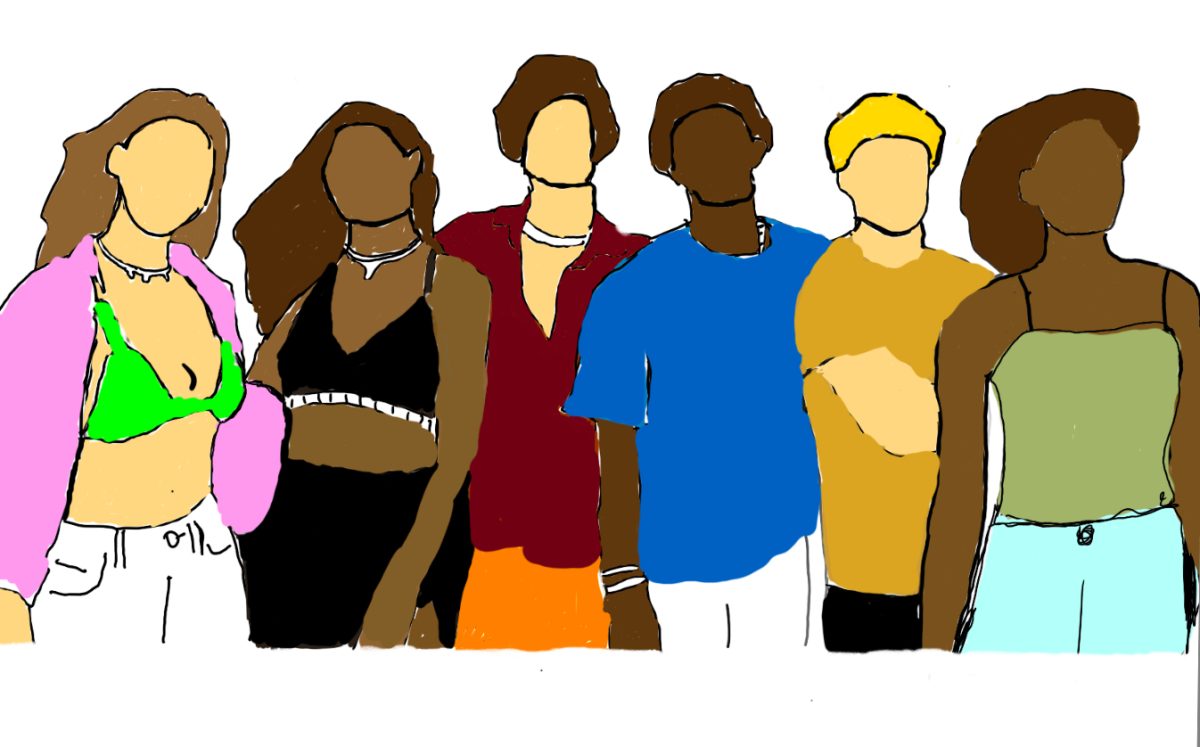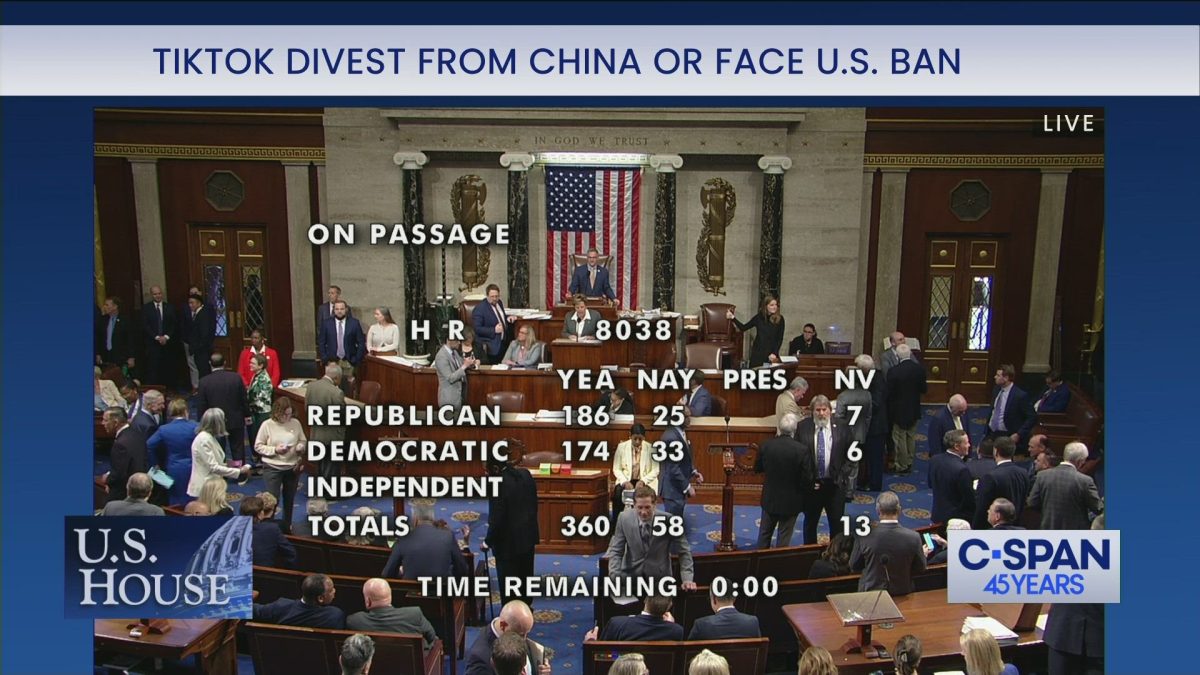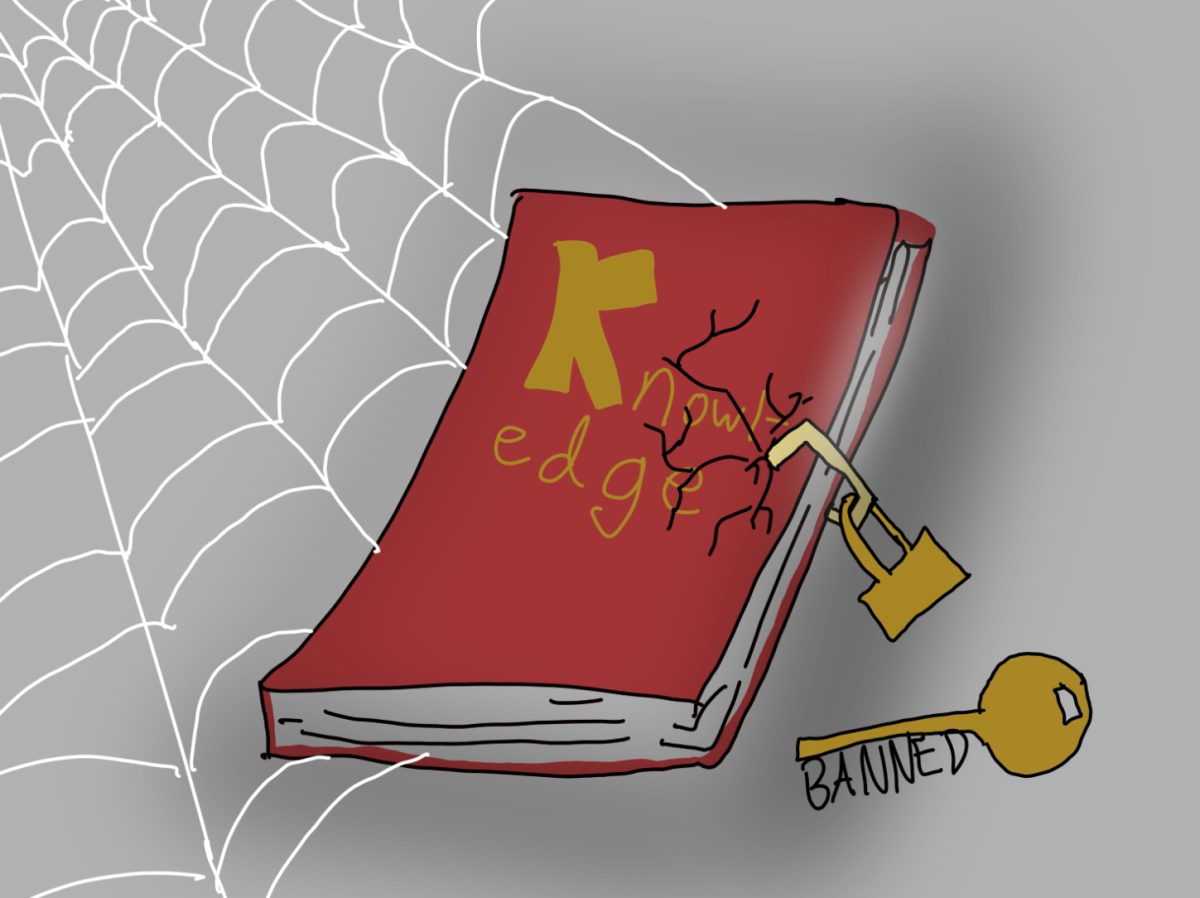On April 24, 2024, President Biden signed a foreign aid bill detailing how to provide aid to Ukraine. Included within the bill: a clause outlining that TikTok, a popular social media platform, will be essentially banned in 270 days. The app has come under fire in recent months for the algorithm used to collect data and tailor people’s For You pages, which many politicians argue can be weaponized by the parent company ByteDance in China. However, is TikTok really the evil super weapon that people have painted it as? Is the “foreign influence” bill really what we think?
H.R. 8038 is entitled the ‘‘Protecting Americans’ Data from Foreign Adversaries Act of 2024’’ and follows a similar act from the House of Representatives on March 13th that gave the company around five months to sell. The current bill gives TikTok’s parent company, ByteDance, nine months to sell the company to an American company. Congress allows for a 90-day period that may be granted if the company has not been able to sell by that date.
Moises Mendez II from Time Magazine explains that although TikTok will be “banned,” that doesn’t mean it’ll immediately disappear from people’s devices; it’ll just disappear from the App Store.
“This means the platform would not be able to update the app, nor would they be able to keep it up to date, and it would slowly become unusable,” Mendez said.
An important aspect to note is that the bill primarily refers to TikTok and companies like it that have owners outside the United States as “foreign adversary controlled applications.” TikTok itself as well as ByteDance is mentioned once within the eleven pages under Division D, the section detailing the process of handling the foreign-controlled applications.
Foreign adversary is an extremely broad term. Within the context of the bill, it could be Russia, Iran, North Korea, China, and dozens of other countries that the United States deems “adversaries.” But looking forward, who would that be? Under H.R. 8038, any app that’s owned by a country the United States is in conflict with in the future could have the same 270-day ultimatum.
Natalie Chin, a San Domenico senior, points out that part of the reason TikTok is being banned may be because it’s specifically a Chinese company.
“TikTok is just another company and they’re targeting it because it’s from China,” Chin said.
It could very well be that the reasoning behind TikTok being banned is not due to the overall prevention of influence from “foreign adversary” countries, but due to the fact that it’s specifically from China.
Matt Bristley, an SD Social Studies teacher, comments that the rare show of bipartisanship with the TikTok ban is representative of the United States’ attitude towards China.
“There are a few things Republicans and Democrats can agree about and one of those is that China is a threat to the United States,” Bristley said.
Bristley cites the “rolling back of globalization” as part of an ongoing theme of recent years with countries limiting the spread of information, as China has also banned United States companies such as the New York Times and Wikipedia.
However, concerns over China’s access to United States data are valid as the TikTok algorithm collects information from each user as they join the platform, making it more susceptible to data leaks. Even the government of China is skeptical of ByteDance despite it being a Chinese company. TikTok itself isn’t available for download in mainland China, with the main short-form video platform being a similar app called Duoyin.
Despite conflicts over the legitimacy of the TikTok ban and the reasoning behind it, ByteDance is attempting to combat the fears of data leaks and overall skepticism towards the app.
Tiktok CEO Shou Zi Chew and the company team has launched a campaign entitled “#KeepTikTok,” posting videos highlighting the benefits of TikTok. According to a video posted to the TikTok account on April 9th, TikTok generated 14.7 billion in revenue for American small businesses in the past year and contributed 24.2 billion to the US economy in 2023.
“I don’t think it should be banned because there are a lot of other issues that the government should be focusing on,” Swaim said, mentioning that she also finds it useful as she learns a lot from the online community.
In a video on the TikTok verified account from April 24, 2024, CEO Chew addressed the stirrings that TikTok will be going away forever with the new bill.
“Rest assured, we aren’t going anywhere,” Chew said. “We are confident and we will keep fighting for your rights in the courts.”
Touching on people’s concerns that the government of China would be accessing data collected from the TikTok algorithm, Chew explained that there would be further safeguards put in place.
“We have invested billions of dollars to secure your data and keep our platform free from outside manipulation,” Chew said.
As of May 14th, eight content creators have sued on the basis of the First Amendment that gives all United States citizens freedom of speech and expression, in addition to a lawsuit from ByteDance on May 7th. The future of TikTok is uncertain, yet it’s evident that there’s much more going on under the surface of the ban than what many believe.























